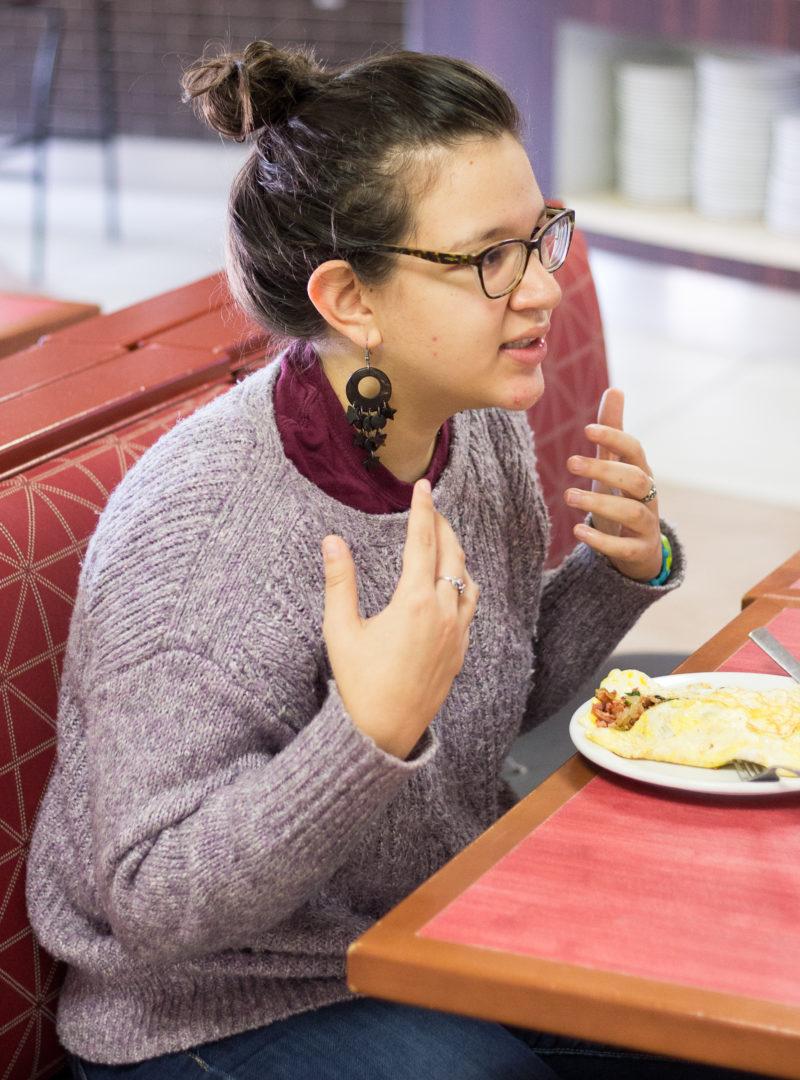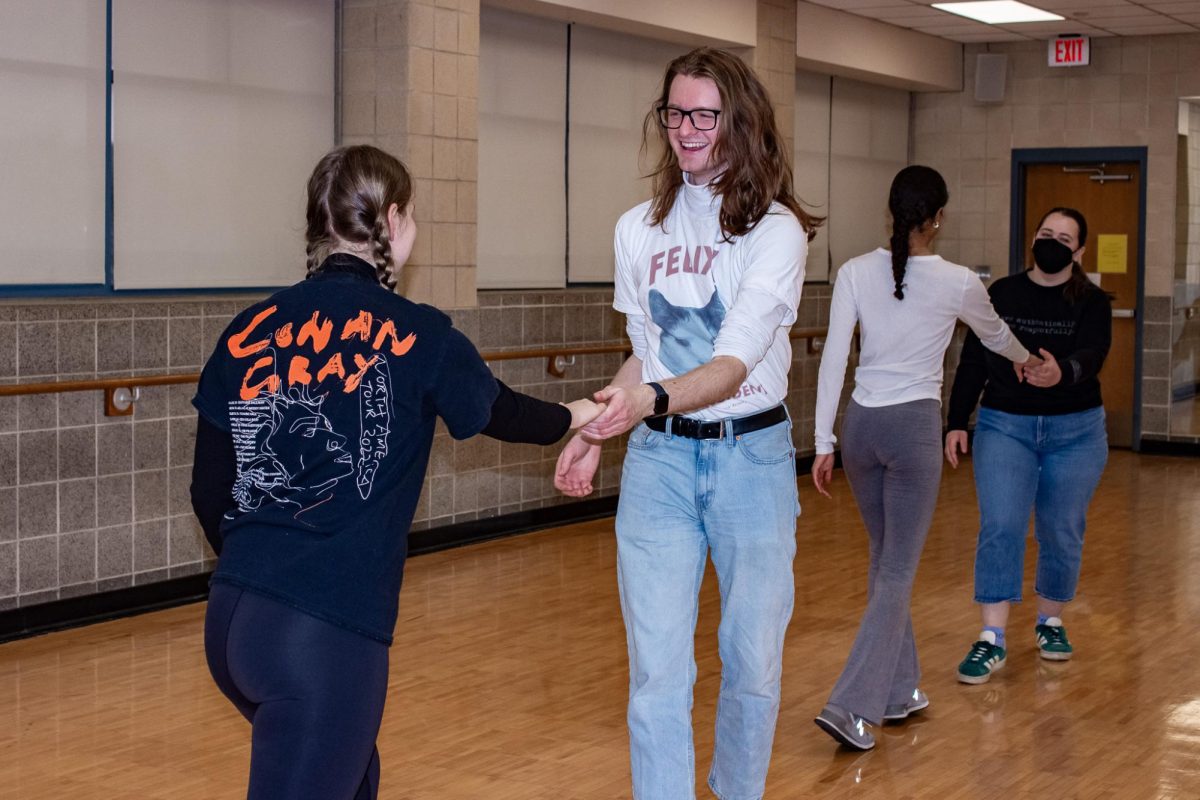Over the weekend of Sept. 23, a group of McNair Scholars from Trinity University attended the 24th annual McNair Research Conference at University of Maryland, Baltimore County (UMBC). Over the weekend, they also visited Johns Hopkins University, and some of the group visited New York University (NYU).
The McNair Scholars Program is a national, federally funded program that assists underprivileged, first-generation college students in preparing to apply and attend graduate school. Throughout the year, McNair Scholars participate in summer research, graduate school visits and research conferences across the United States.
Janett Muà±oz, biochemistry and molecular biology double major and senior member of the McNair Scholars Program, spent the summer managing a mammogram bus, attending health fairs, using her bilingual abilities to help set up free mammogram appointments for Spanish speakers and participating in other community outreach for the nonprofit Martinez Street Women’s Center, which is located in eastern San Antonio.
“I was able to learn a lot of interesting things about the East Side. If you’ve been there, you know that it’s very different from the rest of San Antonio “” there aren’t that many banks, there aren’t that many grocery stores, there aren’t as many jobs,” Muà±oz said.
Muà±oz explained why health services need to be provided to working-class neighborhoods in San Antonio.
“If you don’t have health insurance, you can’t even provide for your basic needs if you get sick. Firstly, you probably don’t want to miss work because you probably don’t have the luxury,” Muà±oz said. “They can’t think about that because they’re more concerned about paying the bills and providing for their family. That takes precedence over their mental health.”
Muà±oz conducted research relating to poor mental health, which is often an unaddressed issue on the East Side.
As part of her research, she introduced yoga into the Girls’ Zone program at the Martinez Street Women’s Center. Muà±oz gave participants surveys before and after yoga sessions and found a significant improvement in happiness and calmness.
At the conference, McNair Scholars presented research like Muà±oz’s, in projects such as neuroscience, immigration and a variety of other fields.
“Our students are all across the board, from the humanities to particle physics,” said Kelly Lyons, associate professor of biology and director of the Trinity McNair Scholars Program.
Faith Deckard, a senior biology major, presented research relating to discrimination in the criminal justice system stemming from the lack of data on capital trial sentencing. Her research found that in 2005, black men were vastly overrepresented in murder cases involving male victims, while white men were overrepresented in murder cases involving female victims. This research was done in the absence of a national archive about capital murder trials, which Deckard says contributes to the discriminatory practices evident in her study.
The weekend provided opportunities that Deckard usually doesn’t get.
“These conferences and trips like this give us a brief taste of a different lifestyle. They “˜wine and dine’ us, all expenses are paid, and for once, we don’t have to refuse eating a certain item or attending a certain event simply because we lack the funds,” Deckard wrote in an email interview. “Instead, if we don’t participate, it’s because we didn’t want to. We had a choice.”
The group attended several social events with McNair Scholars from other universities.
“It was great to see a lot of minorities in a group that wanted to go into higher education, especially coming from Trinity, where minorities are slim. I really felt the family environment, which I really enjoyed,” Muà±oz said.
Brandon Guzman, junior McNair Scholar, also enjoyed the sense of community.
“It was really cool seeing so many people with such passion for their research,” Guzman said.
After their time in Baltimore, Guzman and two other McNair Scholars from Trinity travelled to New York City, where they visited the NYU graduate school. Guzman gained a better understanding of the many different aspects of graduate school, such as the application process and student life.
“It’s all about getting insight and talking to students that are actually going there,” Guzman said.
Guzman sees the McNair Scholars Program as an invaluable asset in his undergraduate experience.
“It’s definitely a support system that we can lean on. And it gave us the opportunity to visit one of the most prestigious universities in the world,” Guzman said.
Muà±oz appreciates the program for providing the opportunity to focus on a career she is interested in pursuing.
“When I was in high school, I knew I needed to go to college because that’s what I came to America for, but I never thought about graduate school. I never thought about doing research. I was very much focused on going to school to get some knowledge to get a good job that provides for my family,” Muà±oz said. “I didn’t think that these career options were open to me. I just thought, “˜I need a job.’ But through my experience my focus has shifted from a job to a career. There’s a difference between a job and a career “” my parents have jobs, but I have the luxury to pick a career; I have a luxury to go into whatever I want to go into, and I’m not going to take that lightly.”
Guzman was also thankful for the experience.
“If it wasn’t for the McNair Program, I would never have the chance to take a trip like this. I can’t wait to go back next year,” Guzman said.
Until then, the McNair Scholars will stay busy in the lab and in the classroom.







